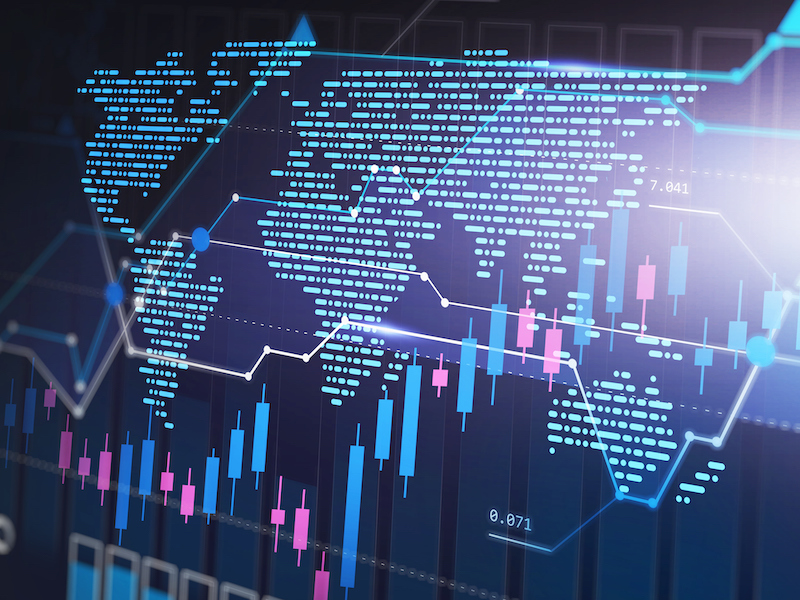

Transcript: Democracies provide best environment for emerging market returns
Ross Cameron of Northcape Capital says a shift away from democracy damages a whole range of checks and balances, and typically hurts investor returns
- Featuring: Ross Cameron
- February 11, 2025 February 11, 2025
- 13:01
- From: Northcape Capital

Welcome to Soundbites, weekly insights on market trends and investment strategies, brought to you by Investment Executive and powered by Canada Life. For today’s Soundbites, we’re talking about emerging markets with Ross Cameron, portfolio advisor and analyst with Northcape Capital. We talked about headwinds and opportunities, and we started by asking about the current deglobalization trend.
Ross Cameron (RC): If we look at global trade in goods and services as a share of GDP, that grew very steadily from about 35% in the early ’80s, all the way up to 60% of GDP, and peaked in the early 2000s. Now, what we saw in the first Trump administration — and I suggest that would be a guide to the second Trump administration — is not a decline in globalization, per se, but we’re moving into regional blocs. I think that we have to be aware of that and position appropriately. You want to seek out countries that are exposed to the U.S. trading bloc. And I suspect that the other primary trading bloc will be the Chinese one. And I think that would be a harder one for long-term investors to make strong investment returns.
Current EM trends
RC: This is an asset class where you never want to have a passive approach. Within this bloc there’s always countries that are performing very well and countries that are struggling. So I think it’s absolutely critical to have a highly selective approach. It may be the case that, going forward, at any given time, you only want exposure to a handful of these countries. So you need to have an approach where you’re picking the very best countries at any given time and avoiding the periphery countries. Broadly, we continue to prefer democracies. As we’ve seen in Thailand — where, really, an election was stolen a couple of years ago — when you see a shift away from democracy, this damages a whole range of checks and balances, and it typically hurts investor returns. So I think that’s one lens to look at the EM classes, is to pivot towards democracies, preferably those that have a vibrant domestic free press. So when we look at the kind of countries that meet these characteristics — countries like India, Mexico, Philippines, Poland, Brazil, Taiwan, South Korea — so there’s still plenty of opportunity within this asset class to find great companies for investors.
The continued rise of India
RC: I think the fact that [Prime Minister Narendra] Modi fared less well in the election than expected is, in some ways, reassuring, because I think it’s indicative of free and fair elections in the country, something which the global press had questioned historically. I think the need to form a coalition here has focused Modi more on rural consumption and bringing up the income standards of the poorest Indians, which is a positive tailwind for consumption in that country. The economy is still resilient. We’re looking still at 5%-plus GDP growth this year. Very few countries in the world are going to deliver that kind of GDP growth. And, finally, I think the big appeal of India continues to be that the very best companies in the country are excellent allocators of capital. And ultimately shareholder value creation — the returns that we receive as investors — is a direct function of that capital efficiency. And that’s in very significant contrast to China, where capital allocation has been poor. In China, we’ve had 20 years of very strong economic growth but we haven’t been rewarded for that. And that’s absolutely because of this poor capital allocation.
Why Mexico makes sense
RC: I think Mexico looks really interesting. Mexico is dirt cheap, trading on two standard deviations below their average PE. And yet the U.S. needs Mexico. It needs Mexico in terms of supply chain. It needs Mexico because the U.S. ultimately wants to rebalance away from China. Mexico has much cheaper manufacturing wages, has excellent logistic connections to the U.S., [and] ultimately is really much more of a U.S. ally than the alternatives. Investors that can take a two- or three-year view, buying now, you’re going to make money on the stocks themselves and I think there’s an opportunity to make money on the currency as well.
And finally what’s the bottom line on investing in emerging markets in the current moment.
RC: We’re in a world where Trump has started his presidency with the most expensive U.S. stock market in history. U.S. stocks are 83% more expensive than when Bill Clinton became president. They’re 145% more expensive than when Obama became president. And the PE is four times higher than when Reagan became president. So whilst that U.S. stock market has been very strong, in the long term, the biggest driver of performance is the valuation multiple that investors pay. Emerging markets, conversely, look historically cheap. So I think if we see a world where the U.S. dollar stops appreciating, maybe even moves into a bear market, having exposure to EM I think is very appropriate positioning.
Well, those are today’s Soundbites, brought to you by Investment Executive and powered by Canada Life. Our thanks again to Ross Cameron of Northcape Capital. Visit us at investmentexecutive.com, where you can sign up for our a.m. newsletter and never miss another Soundbite. Thanks for listening.
**
Go back to the article.
